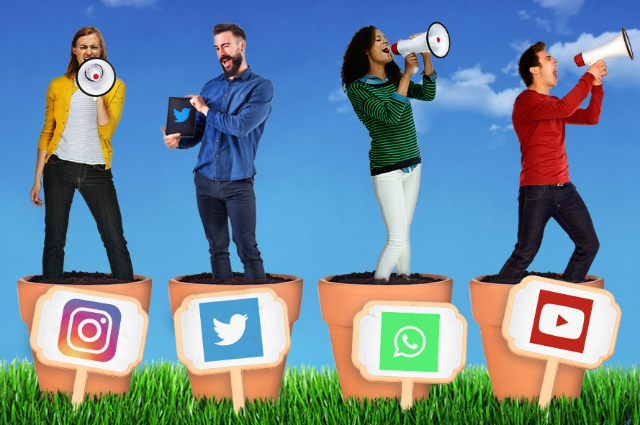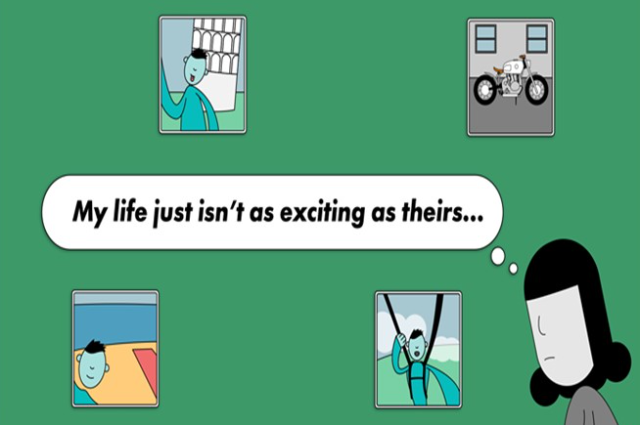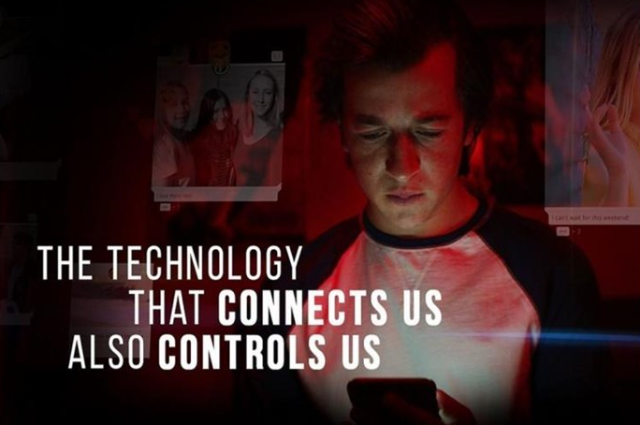Social Media has now become as pervasive as the omnipresent oxygen around us — indispensable for our existence. More intriguing is the fact that although building up of the digital space requires technical acumen, operating the same does not need any adept hand, as such. The result of all these factors amalgamating with its easy affordability and accessibility has led to the usage of the same by just everyone and anyone. Worldwide social media users, as per the 'We Are Social and Hootsuite’s Digital 2019' report, have grown to almost 3.5 billion at the start of 2019, citing the global penetration figure as 45 per cent. To startle us more, it is roughly said that 98 per cent of today's world’s internet-connected population has access to digital media including social media, only through handheld devices (ibid). Include the numbers using the same through other devices, and the total swells up monstrously enormous.

It is indubitable that Social Media has the perpetual power of connecting the connected and also disconnected. At the outset, the best contributions of social media are borderless communication, ageless connectivity, photos sharing, status updates, hobby sharing, celebrating one’s success instantly, communicating problems, seeking help, disseminating sorrow, selling one’s business, marketing products, networking for social cause and organizational promotions, and the list goes on and on.
Pondering a bit deeper, today, with such a huge population being present on social media, it is almost evident that we all, in some way and other, are perennially connected with each other. Interestingly, this connectedness has become such a necessity today that one of the trending lingos of the era has become Fear of Missing Out, abbreviated and popularly known as FoMo. The FoMo can range from not knowing of stories like Mr Peter struggling to keep a street dog away from his pet cats Belly and Kelly, to being unaware of a local criminal turning a priest. While we are connected to all sorts happenings/ incidences/ news etc., regardless of the location and religion, we also learn in the process and at the same time share our thoughts to audiences known, as well as unknowns. This sharing of thoughts, intentionally or otherwise, lead to terming and tracking of someone as experts or knowledgeable in the subject, who are then followed by the respective interested people, to educate themselves. The beauty of social media is such, that one can learn, unlearn and relearn things regardless of their location and education background, without paying for it. Taking the threads further, the common groups on social media, or community, as known online, form a potential platform for sharing of critical information and fetching support/ help at one go. A critically ill patient in need of the blood of a scarcely available blood group too can be saved in no time, when the message, on social media, in common groups and otherwise, viral in almost at a speed faster than light and sound. The same may be applicable while withstanding or informing about a possible crime or mishap, or an already happened on in our vicinity or elsewhere. Hence, it would not be an exaggeration to put forth that today it is almost impossible to survive without being on Social Media because the spiralling impact of the same meeting the requirements of almost all possible aspect of our lives, is incredibly unmatchable as well as irreplaceable.

To add to its beauty, Social Media's most powerful is that it offers us identity, rather, identities. Not only Instagram, but Facebook, Twitter, YouTube, TikTok, SnapChat, WhatsApp, and whatnot, the list is vast and so are the possibilities of our identities which shift with our shift of logins to each of the social media platforms that we are on.
"We perform ourselves somewhat differently in each of these spaces. Each time we perform ourselves in each of these spaces, it’s a kind of self-reflective exercise in a way.". - Sherry Turkle, MIT Professor.
However, contrastingly enough, at the bottom of the social media pyramid, their lies a latent volcano which when gets to explode have the potential of either hindering the functioning of the global society at large or galloping the entire global society. Close to a billion people today are active on Social Media. The hype built around this media and bombarding excitement pulls even those who are averse to the Internet and such technology. Apart from the apparent accessibility and share-ability of photo albums, games, quizzes, birthday reminders, status updates, event invitation, mass mailing, fans, there are a host of other fascinating yet complex factors, which attract and sustain people in the social networking sites. We will take a few examples to unfold and understand the darker side of social media. Firstly, at the commencing level itself, the data, like personal details with respect to our whereabouts including phone numbers, residential addresses, and other pivotal data, shared while signing up on the social networking sites, are way too dangerous on the face of rampant cyber crimes taking place across the globe. This when added with the public accessibility of freewheeling display of our private moments on the social networking sites, alarmingly increases our vulnerability.
Secondly, the underlying yet very pertinent fetish for approval from the so-called friends of the social media group. An apt example here would be the last year's unfortunate incident of the Pune youth, who died on the spot while taking a selfie video being on the go on a bike. The incident has once again consolidated the most feared yet sought-after hysteria and mass anxiety of approval seeking and popularity tracking. This is dangerous for a high-functioning society like us which on the contrary boasts of having one of the highest youth population. The hysteric fetish for "network gratification" replacing "self-gratification" is leading to destruction irreparable. The cons of technology and more so social media which speed up with the selfie fever is yet to reach its peak with more and more disoriented youth joining the herd every day. The day is though not far when in order to break the peak one would have to destroy the foundation.
Thirdly, the controversies created unnecessarily by action and reactions in the name of comments on social media. One may cite Atul Kochhar, the much-awarded Indian chef, whose tweets about Islam caused so much outrage that it led to closing down his restaurant in Dubai. One may track down the controversy which was triggered by a tweet as a response to one of the Priyanka Chopra’s tweets. The tweet was essentially an apology issued for hurting the sentiments of a few due to one of her acts in an American series, showing allegedly Hindu terrorists. Her tweet was neither hateful nor seditious. However, the chef amalgamating his head with wrong facts stirred up the environment attacked the entire religion for no reason. What followed is now known to all. The crux of the matter is the responses that we receive and give, are both at the same time not thought through enough and in turn, the sentiments laced with wrong facts go to create mayhem to such extent that cannot take a U-turn after a certain point. The case in the point clearly portrayed the social media a potent weapon for spreading hates and uncalled for consequences, as the media let lose ourselves of the self-imposed restraint, by creating an illusion with respect to intractability.

The bare thread is so delicate that in one of the recent incidences in Kolkata, a curfew had to be imposed following an uproar between two dominant religious groups due to a fake WhatsApp message circulated widely. One more example here would be how within a nation-state like India, there are multiple religious, political, socio-economic, racial, lingual, caste etc. groups which co-exist with a constant urge for power and prevailing over others. Each of them plays a role to protect the interest over the other and ensuring that the interest of one group prevails over others. Multiple actions manifest as a consequence of the same. Though these are all perennial issues existing in all kind of society, digital media like Facebook and other social media tools which connect to all has a huge potential of being misused or in many cases has been misused. In the age of digitalism and the presence of efficient and effective social media, it even becomes easier to spread fake news and hateful inciting news items like wildfire while provoking society in general. Social media is not tailor-made for only benefits; in fact, social media invites, breeds and multiplies toxicity.
It is time to decipher how our online personas are redefining human connection, communication, and the consequences — and asks us to think deeply about the new kinds of connection we want to have, social or unsocial.
